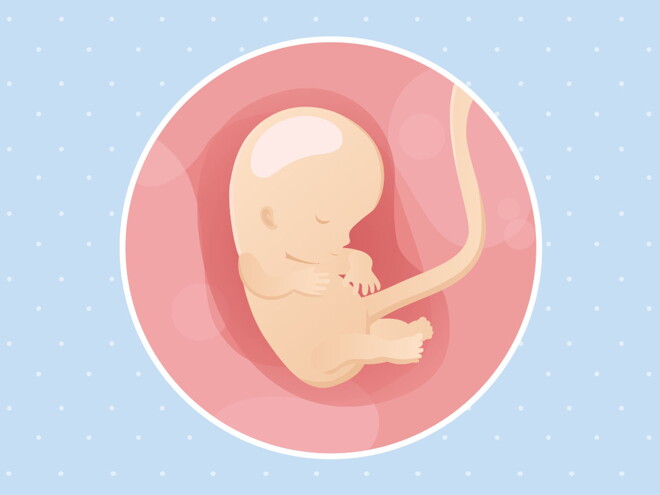
Pregnancy Week 10
You are already at week 10 of your pregnancy. Still another 29 weeks to go before you get to meet your little love. Learn more about what’s going on this week.
BABY DEVELOPMENT
Your baby is really starting to resemble a little human being. His face finally looks like one, with everything in place. His head is still very large, much bigger than the rest of his body, but he can turn it. His body has lots of muscles and can wave his arms and legs, though not consciously. In his abdomen, his over-sized liver is starting to form his red blood cells. His brain continues to form with nerve cells multiplying exponentially to establish the different neural circuits. Incredibly, they will number between 12 and 14,000,000,000 at the 18th week! That number will come down, as it is supposed to, when his brains reaches full maturity around the age of 18.
YOUR BODY
You were jumping for joy over the pregnancy half an hour ago and now you are worried to death? Yes, the mood swings during the first trimester can be quite impressive. If you have been suffering badly from mood swings or feeling unwell, there is good news for you. That will soon be over. In the second trimester, which is just about to start, hormone levels become more balanced again. That’s when most mums experience a feeling of calmer wellbeing.
NUTRITION
This week we are calling your attention to good, old-fashioned protein. Are you getting enough each day? Protein is essential for both you and your growing baby. It helps transport nutrients in the body and in the building of healthy bones, and supports the healthy development and maintenance of body tissues. Protein is found in foods of both animal and plant origins. Animal proteins are rich in all the amino acids that the body cannot produce and are therefore essential in our diet.
No single food of plant origin, except soybeans, contains all of the essential amino acids. Vegetarian diets can provide vegetable-sourced protein thanks to soybeans and other legumes and nuts, as well as through dairy and egg proteins if those foods are part of the diet. Make sure you let your doctor know if you are vegetarian or vegan.
TIPS
It has been asked if pregnant women who are older than 35 need to take particular care. The answer:
Not really. On the other hand, pregnant women over 35 years of age who have a slightly higher risk of a chromosome problem with their child should be considering prenatal diagnosis. These antenatal examinations aim to check the health of the embryo. They can take the form of an amniocentesis test. The decision to have this test carried out is difficult and lies with the mother alone. However, it is often helpful to talk to other people about it and exchange experiences. That, and talking to your obstetrician, can help you feel relaxed about your choice.

